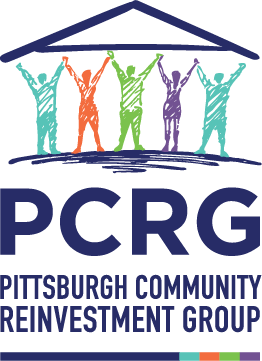PCRG Director of Policy Chris Rosselot participated in a panel discussion at the Homeownership Policy Symposium to explore the future of homeownership policies under the newly elected Congress and incoming presidential administration. Rosselot joined Sarah Brundage from the National Association of Affordable Housing Lenders, Chloe Grainer from the National NeighborWorks Association, and Jill Gilbert, from Smith NMTC Associates. The panel was moderated by Elisabeth Coats, representing both NCST and the Homeownership Alliance.
The panel covered a broad range of topics, including the impact of the recent election results on housing and tax policy in the upcoming Congress. Among the anticipated developments, they discussed potential housing provisions in new lax legislation, including the popular Low Income Tax Credit (LIHTC) program. Although a LIHTC expansion – which would have funded an additional 200,000 shovel-ready units – was included in the House-passed Tax Relief for American Families and Workers Act of 2024, it failed to clear the Senate.
Efforts to incorporate the Neighborhood Homes Investment Act into next year’s comprehensive tax package were also highlights of the discussion. Modeled after LIHTC, this tax credit program focuses on rehabilitating owner-occupied homes in qualifying census tracts. While the initiative enjoys bipartisan support, panelists emphasized the need for robust advocacy from groups like the Homeownership Alliance to navigate what is expected to be a highly competitive environment for federal funding next year.
The panelists agreed that the incoming administration and congressional leaders are likely to prioritize reducing the federal deficit, subjecting new federal programs to heightened scrutiny. Advocacy tips they shared during the discussion included tactics for leveraging bipartisan support and utilizing strategic communications to underscore the broad, cross-community impact of housing policies. Panelists noted that policies benefiting both urban and rural constituents could foster bipartisan cooperation. They also observed that housing affordability, a key focus in both presidential campaigns this fall, is expected to remain a central issue in the new administration.
One area of the discussion’s focus was scaling successful state and local programs, like Whole Home Repairs, to the federal level. These programs demonstrate how investments in existing housing stock can stabilize communities, improve quality of life, and promote equity.
“Especially in Pennsylvania, where the housing stock is so old- and long-time homeowners on fixed incomes are struggling to stay in their homes,” Rosselot said. “Home repair programs are critical to fund at a large scale. Home repairs need billions, not millions, to make a significant impact.”
The panel also examined the federal government’s role in enhancing disaster resiliency programs and addressing insurance reform to respond to increasing climate risks. Panelists stressed the importance of proactive measures to help families recover quickly from disasters and avoid long-term financial instability.
Another challenge discussed was the growing influence of corporate investors acquiring single-family homes – a trend that limits affordability and access for first-time homebuyers. The panel emphasized the need for regulation to protect homeownership opportunities. Rosselot cited PCRG research showing a nearly 10% increase in corporate purchases of single-family homes in Allegheny County from 2010 to 2020.
PCRG is a proud member of the Homeownership Alliance – a practitioner-led collaboration that advocates for more resources and better policies to increase affordable homeownership opportunities for American families.

